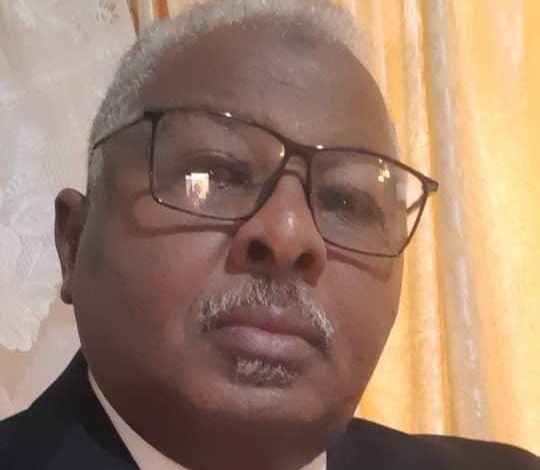Unmasking a Double Standard against the SudanAmerican old lies cannot become new truth-2

Mubarak Mahgoub Musa
Recent U.S. allegations accusing the Sudanese Armed Forces of using chemical weapons bear a striking resemblance to earlier claims made against Sudan’s Al-Shifa pharmaceutical factory in 1998. At the time, the United States accused the facility of producing chemical weapons—a claim that was later widely discredited. Such patterns suggest a recurring strategy of constructing narratives to justify foreign intervention, often under the banner of humanitarian concern or global security.
Manufactured pretexts and interventionism have been increasingly a pattern in U.S. Foreign Policy. This article reviews key historical examples where the United States, in pursuit of its strategic interests, has circumvented international law, disregarded sovereignty, and employed disinformation to rationalize military actions. These precedents cast doubt on the credibility of current and future U.S. narratives involving alleged threats in the Global South.
One of the most consequential examples of this trend occurred in 2003, when then-U.S. Secretary of State Colin Powell presented a vial of white powder to the UN Security Council, asserting it as evidence of Iraq’s weapons of mass destruction (WMDs). This claim served as the foundation for the U.S.-led invasion of Iraq, which resulted in extensive civilian casualties, political destabilization, and the destruction of infrastructure. The invasion ultimately proved unjustified, as no WMDs were found.
While Powell and former UK Prime Minister Tony Blair later expressed regret over what was later dubbed the “lie of the century”, their acknowledgment came too late to reverse the catastrophic consequences. The war devastated Iraq socially and economically, with damages estimated at over $600 billion and lasting impacts that continue to affect the region.
By the same token, in 1964, the United States claimed that North Vietnamese forces had launched an unprovoked attack on U.S. naval vessels in the Gulf of Tonkin. The incident, later shown to be exaggerated or fabricated, was used to secure Congressional authorization for a full-scale military intervention in Vietnam. The resulting conflict caused immense human loss—more than 58,000 U.S. soldiers and hundreds of thousands of Vietnamese civilians and combatants—and contributed to decades of instability. In fact, the Gulf of Tonkin event exemplifies the use of disinformation to manipulate public opinion and legislative authority in favor of war.
On the other hand, during the Reagan administration, the U.S. government was implicated in the covert sale of arms to Iran—despite existing sanctions—with profits funneled to fund Contra rebels in Nicaragua. The Contras, engaged in a violent insurgency against the Sandinista government, were responsible for widespread human rights abuses. The Iran-Contra affair violated both U.S. law and international norms, revealing a willingness to exploit covert channels to pursue geopolitical objectives. The affair not only damaged U.S. credibility but also deepened regional conflicts (Iran- Iraq war) that claimed thousands of lives.
In a related incident, between 1932 and 1972, U.S. health authorities conducted the Tuskegee Syphilis Study, during which African American men were deliberately left untreated for syphilis without their informed consent. This egregious violation of medical ethics and human rights was later condemned as a crime against humanity. Although the U.S. government issued an apology in 1997, the incident remains a stark reminder of institutional racism and abuse of scientific authority.
Here in Africa, the rise of Burkina Faso’s President Ibrahim Traoré—who advocates for a sovereign, anti-colonial development path—has drawn increasing scrutiny from Western powers. U.S. Africa Command (AFRICOM) General Michael Langley recently alleged that Traoré was misappropriating national gold resources to sustain military rule, rather than improving public welfare. These remarks provoked widespread condemnation and protests in African cities and diaspora communities, where many view such accusations as politically motivated.
Following public backlash, General Langley shifted his position, suggesting instead that the U.S. seeks military cooperation with Burkina Faso to combat terrorism. However, many observers across the continent interpret this pivot as part of a broader pattern of neo-colonial justification—using counterterrorism as a pretext for securing access to strategic resources and expanding military presence.
South African remains the latest example of American narrative distortion. It occurred when U.S. President Donald Trump publicly accused South Africa of committing genocide against white farmers, citing disputed reports and misleading imagery. Many of the visuals presented were later debunked—some were from unrelated events in the Democratic Republic of Congo, while others misrepresented the facts of the land reform process in South Africa.
Some analysts have interpreted these claims as politically motivated, potentially linked to South Africa’s international legal actions concerning Israel’s conduct in Gaza. The timing and tone of the allegations suggest a retaliatory posture aimed at undermining South Africa’s moral and legal credibility on the global stage.
Apparently throughout its long history – as the above examples illustrated- the United States, in order to achieve its own interests, showed no qualms of whatsoever, to take the law into its own hands; flout all international laws, conventions and norms, and does not hesitate to that effect, to fabricate pretexts and disseminate lies, in order to intervene militarily, to forcefully change regimes or to dismantle national armies around the world.
In conclusion, from Iraq to Vietnam, and from Nicaragua to contemporary Africa, including the Sudan, the United States has repeatedly used questionable evidence and politicized narratives to justify military interventions and influence geopolitical outcomes. These historical patterns warrant careful scrutiny of current and future U.S. foreign policy claims—especially when they involve calls for military action, regime change, or sanctions under the guise of humanitarian concern.
The international community must advocate for transparent, evidence-based dialogue and resist the normalization of interventions built on unsubstantiated or distorted narratives. It’s only through accountability and adherence to international law can global stability and sovereign integrity be preserved.



